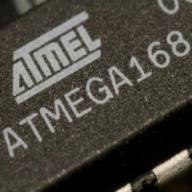其實我之前有學displacement reaction
但係有陣時見到有d equations係less reactive都displace到more reactive ge ions
for example: CaNO3+NaCO3--->CaCO3+NaNO3甘都得?!佢係唔係一條neutralization equation?
acid/alkali+water會有heat released ma?係exothermic reaction?
iron+H2SO4 is exothermic reaction?Why?
CuO is neutral/alkali/acidic?
CaCl2 is neutral/alkali/acidic?
just too nan.......concept未明-_-
Chem Neutralization
2014-08-12 9:44 am
回答 (3)
2014-08-13 7:44 am
✔ 最佳答案
1)但係有陣時見到有d equations係less reactive都displace到more reactive ge ions-這是無可能的.displacement reaction 是指把 highly reactive metal 放入 lees reactive metal ion solution
For example:Na+AgNO3-----> NaNO3+Ag(s)
你的例子中
1)沒有金屬,只有兩種金屬離子(metal ions :Ca2+ and Na+)
所以不是displacement reaction
2)Ca(NO3)2+Na2CO3--->CaCO3+2NaNO3
會發生的原因是因為 Ca(NO3)2 和Na2CO3 都是ionic compounds,溶於水會dissociate to form mobile ions including Ca2+,Na+,NO3- and CO32-
而所有的ions 都帶有電荷,令溶液中既+ve ions 和-ve ions 吸引
所以發生上述反應。
Q2)acid/alkali+water會有heat released ma?係exothermic reaction?
-Yes.It is an exothermic reaction.
Q3)
CuO is neutral/alkali/acidic?
-it is alkaline.
notice that
all metal oxide = alkaline
all non-metal oxide= acidic (CO2.SO2)
Q4)CaCl2 is neutral/alkali/acidic?
-it is neutral.
notice that all the salt are neutral.
As all of them can be the products of Neutralization
2014-08-17 23:29:51 補充:
是了,CuO是alkaline,那它soluble in water 嗎?and also CuOH???
-no.both of them are insoluble in water.
大部分的metal oxide 都不溶於水
除了有k+ na+ 的oxide 和hydroxide 是溶的 ( calcium hydroxide is sightly soluble)
對於不同的離子的溶解度可網上search :solubility table
2014-08-17 23:30:09 補充:
2)why CuO oxide can react with HCl ga?thanks
-以中四學生來說
acid 的reaction 有4種
1) acid with metal
acid+ metal---> salt + hydrogen
eg: 2HC l+ Ca----> CaCl2 +H2
2)acid with metal hydroxide(neutralization)
acid + alkali ----> salt+ water
eg: HCl+NaOH-----> NaCl +H2O
2014-08-17 23:30:32 補充:
3) acid with metal oxide ( as metal oxide are basic[ alkaline] , it is also a neutralization reaction]
acid + metal oxide----> salt+ water
eg:2HCl+Na2O----->2NaCl +H2O
4)acid + metal carbonate/hydrogencarbonate ---> salt + co2 +h20
eg:2HCl+ Na2CO3----> 2NaCl + CO2+ H2O
2014-08-17 23:31:49 補充:
你所講的why CuO oxide can react with HCl ga
CuO is a base which can neutralize HCl
so neutralization occurs between them.
CuO+2HCl----> CuCl2 + H2O
參考: me
2014-08-15 10:43 pm
Ion will be ionize in the aqueous solution.
Ca(NO3)2 => Ca2+ + 2NO3-
Na2CO3 => 2Na2+ + CO32-
When they are mixed, the equation will become
Ca2+ + 2NO3- + 2Na2+ + CO32- => CaCO3(s) + 2Na+ + 2NO3-
Overall
Ca(NO3)2 + Na2CO3 => CaCO3(s) + 2NaNO3
Ionic equation
Ca2+ + CO32- => CaCO3
Note the sodium ion and nitrate ion is a speculator ion and will not involve in the reaction.
It is not a neutralization reaction as there is no reaction between H+ and OH-
Conc H2SO4 with water is exothermic
CuO is not soluble in water
Cu(OH)2 is insoluble in water
CuO + HCl =>CuCl2 + H2O
Ca(NO3)2 => Ca2+ + 2NO3-
Na2CO3 => 2Na2+ + CO32-
When they are mixed, the equation will become
Ca2+ + 2NO3- + 2Na2+ + CO32- => CaCO3(s) + 2Na+ + 2NO3-
Overall
Ca(NO3)2 + Na2CO3 => CaCO3(s) + 2NaNO3
Ionic equation
Ca2+ + CO32- => CaCO3
Note the sodium ion and nitrate ion is a speculator ion and will not involve in the reaction.
It is not a neutralization reaction as there is no reaction between H+ and OH-
Conc H2SO4 with water is exothermic
CuO is not soluble in water
Cu(OH)2 is insoluble in water
CuO + HCl =>CuCl2 + H2O
2014-08-12 8:13 pm
Ca(NO₃)₂ + Na₂CO₃ ---> CaCO₃ + 2NaNO₃
Ca(NO₃)₂ , Na₂CO₃ , NaNO₃ soluble
CaCO₃ insoluble
This is not neutralization.
2014-08-12 12:15:50 補充:
CuO is neutral/alkali/acidic?
It is basic ( insoluble base )
Ca(NO₃)₂ , Na₂CO₃ , NaNO₃ soluble
CaCO₃ insoluble
This is not neutralization.
2014-08-12 12:15:50 補充:
CuO is neutral/alkali/acidic?
It is basic ( insoluble base )
收錄日期: 2021-04-16 17:02:25
原文連結 [永久失效]:
https://hk.answers.yahoo.com/question/index?qid=20140812000051KK00017

